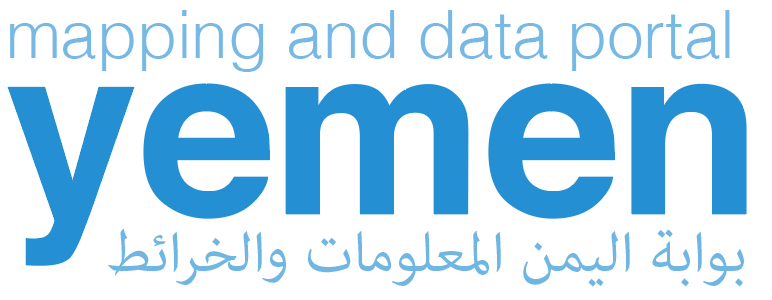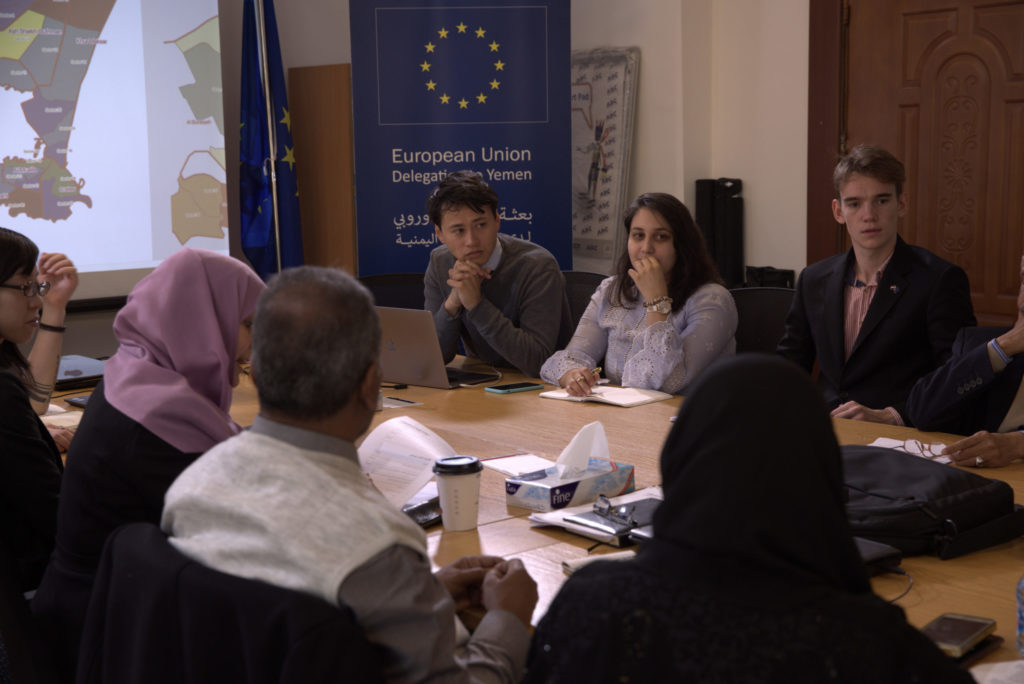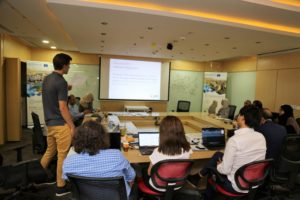Amman – Partnering with the European Union, UN-Habitat has been working on the Rapid City and Neighbourhood Profiling project in Yemen to support the humanitarian and recovery response to the Yemen crisis through providing better urban information and analysis.
Building upon the previous rapid city profiling experiences from the Arab states, UN-Habitat is currently developing seven City Profiles to Aden, Sana’a, Sa’ada, Taizz, Al Hudaydah, Al Hawah and Zinjibar. These profiles foster early recovery and contribute to stabilization and peacebuilding by empowering urban communities and to guide investments and capacity building towards this same objective.
As part of this project, UN-Habitat and iMMAP organized a three-day joint analysis and recovery planning workshop for Aden from 24 to 26 November 2019 at the UN-Habitat Yemen Programme office in Amman. The objectives of the workshop were to bring stakeholders together to better understand the situation in Aden, particularly in the area of housing, basic services, governance, heritage, economy, and population, and to develop strategic priorities for a recovery plan of the city. In order to initiate the joint planning discussion, ten officials from different departments and local government in Aden were invited to participate. Mr. Ahmed Hussein Abdulkarim Jawi, General Director of the International Cooperation from the Ministry of Planning and International Cooperation (MOPIC) “We would like to thank UN-Habitat for this useful workshop, and especially for consulting the government in this planning process.”
The workshop focused on how the conflict has affected the city of Aden in all sectors. The conflict has amongst others resulted in a housing crises: more than 12000 houses in Aden have been damaged, informal settlements have mushroomed as a result of the influx of IDPs, and rents have quintupled in some areas. These developments also threaten cultural heritage sites, as informal constructions encroach on or taken building materials from historical monuments. “ A UNESCO representative also joined, and provided insights on how to protect and preserve heritage in crisis and post-crisis settings.
Based on the challenges and opportunities identified, the participants worked together in several groups to analyse and strategically plan for urban growth, economic recovery, and cultural heritage, with an aim of identifying short-term and mid- to long-term goals for Aden’s urban recovery and reconstruction.




